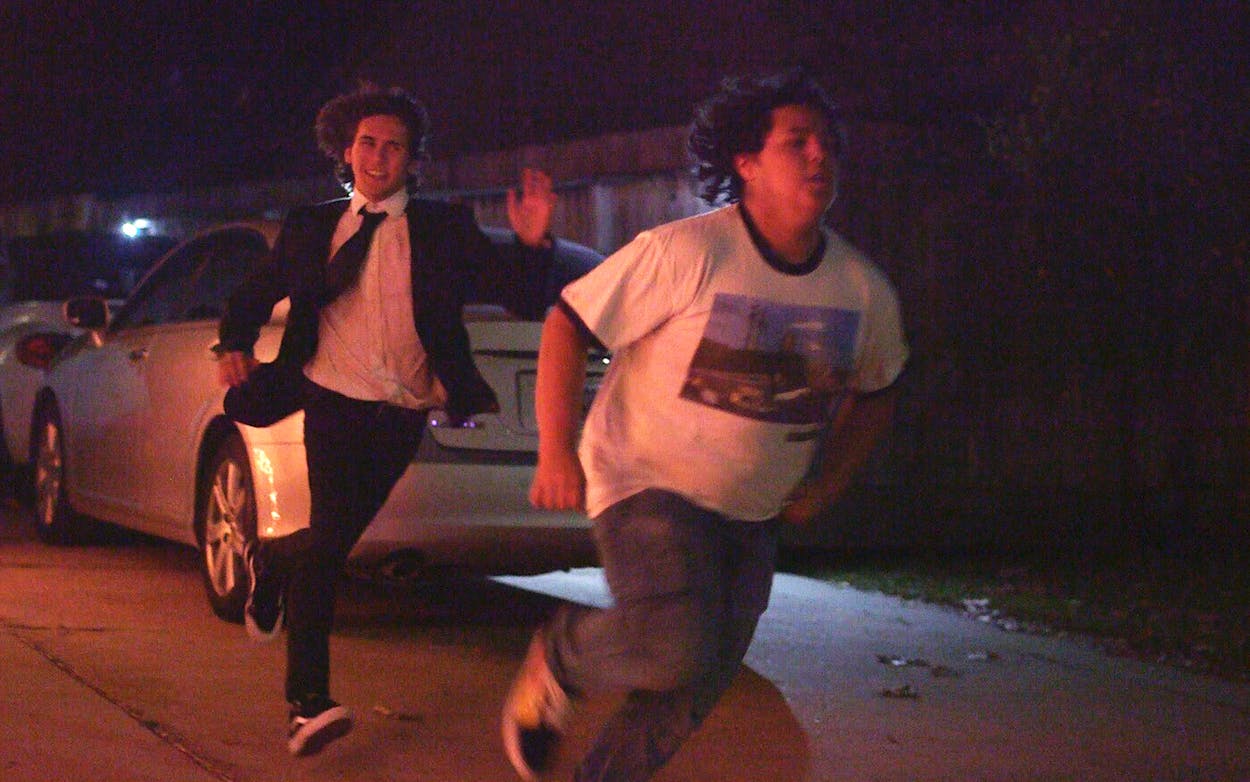In the 2018 short film Trepidation, which premieres March 9 at SXSW, a pencil eraser transforms into a bullet. The sound of a stapler in a classroom sounds like a gunshot. In the back of a teacher’s pocket, a cell phone looks like a gun. It’s a surreal depiction of a generation of high schoolers anxious about the next school shooting.
It wasn’t hard for filmmaker Zachary Goodwin to put himself in their shoes, because he’s a high school student himself. Goodwin, who wrote, directed, and edited the film, is one of nineteen young filmmakers showcased in the Texas High School Shorts competition. The films tackle an array of subjects through experimental, documentary, and narrative formats, all in under five minutes. A handful of the films have premiered at other festivals outside of the U.S. and others are going onto other screenings following SXSW.
Though they range in topic, the films give a sense of what the future of the industry could be. Goodwin, a senior at John Marshall High School in Leon Valley, sees filmmaking as a great way to bridge the gap in understanding between generations.
“If you didn’t graduate high school in the last decade, you might not know what it feels like to be in school and hear about these shootings,” he said. “I wanted to help other people understand that kids are worried about this when they go to school. The idea of a school shooting is something a lot of us keep in the back of our heads every day.”
Other films bring a different perspective to the coming of age genre by exploring sex, LGBT identities, and addiction. Louisa Baldwin’s Fifteen, which centers around a teenager’s first relationship with another girl, was based on the lives of two of her friends and how she saw people react to them together.
Baldwin, a senior at Headwaters School in Austin, identifies as queer and said she wanted to create the film because she rarely saw herself represented in stories for people her age.
“It takes a toll on your self esteem,” she said. “When you can’t see yourself in these coming of age stories and love stories, you can’t relate to them and you start to question how valid your experience is. It feels like you’re missing out.”
For some teen filmmakers, their work reflected their identities; others created diverse films that don’t see diversity as its subject. In his romantic comedy, A Grand Gesture, Tanish Venkatesh said that while part of his drive for becoming a filmmaker is to tell Indian-American stories, he also wants to make movies where the story has nothing to do with the diverse cast.
Venkatesh, a junior at Clear Lake High School in Houston, wrote and starred in the film, which focuses on the main character’s efforts to win back his ex-girlfriend.
“I want to show other kids like me, ‘Hey, you’re here, you exist,’” Venkatesh said. “I want to provide a medium for them to see and watch and learn from, because we all have different stories to tell.”
- More About:
- Film & TV
- High School
- Austin








